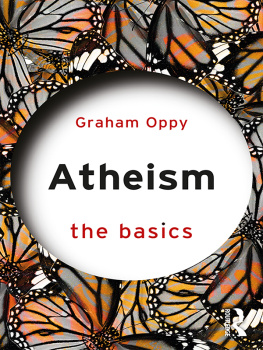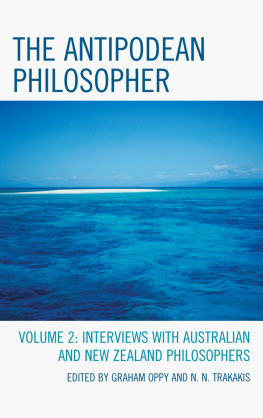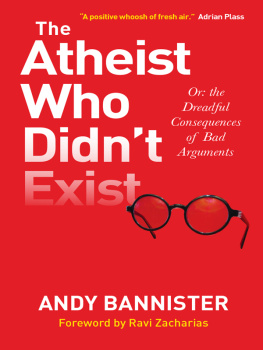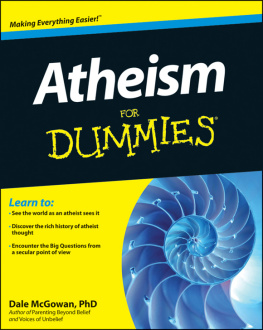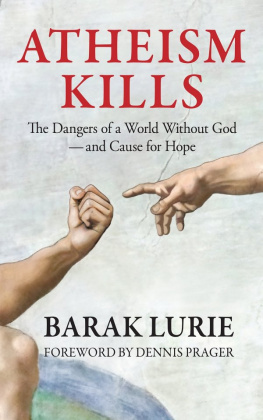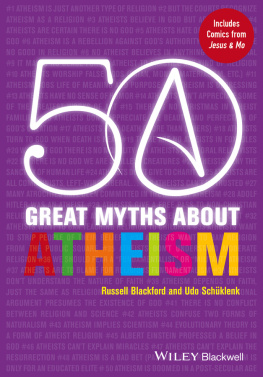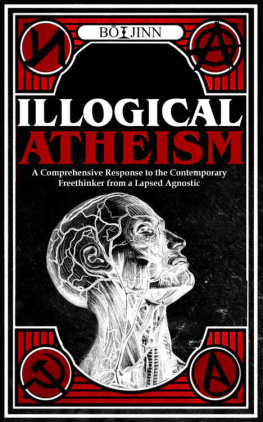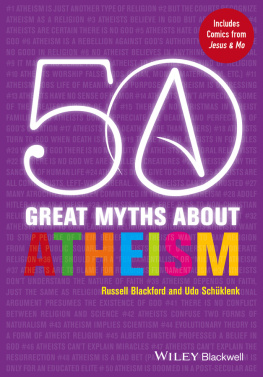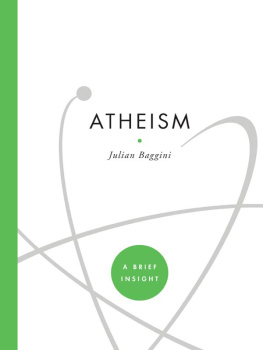Atheism: The Basics is a concise and engaging introduction to belief in the non-existence of deities. Atheism has long fascinated people but debate around this controversial position may seem daunting. In this lively and lucid book, Graham Oppy addresses the following important questions:
What does it mean to be an atheist?
What is the difference between atheism, agnosticism, theism and innocence?
How has atheism been distributed over time and place?
What does science tell us about atheism?
Are there good reasons to be an atheist?
Are there good reasons not to be an atheist?
What do we mean by new atheism?
With a glossary of key terms and suggestions for further reading throughout, the book considers key philosophical arguments around atheism, making this an ideal starting point for anyone seeking a full introduction to the arguments between those who hold atheistic beliefs and those who do not.
A very timely scholarly enterprise, this book will be of interest to students of contemporary radical politics, fascism more broadly, U.S. political history, ideologies and party politics.
Graham Oppy is Professor of Philosophy at Monash University, Australia.
The Basics
Other titles in the series can be found at: https://www.routledge.com/The-Basics/book-series/B
AMERICAN PHILOSOPHY
NANCY STANLICK
ANIMAL ETHICS
TONY MILLIGAN
ARTIFICIAL INTELLIGENCE
KEVIN WARWICK
EVOLUTION
SHERRIE LYONS
FOOD ETHICS
RONALD SANDLER
FREE WILL
MEGHAN GRIFFITH
METAPHYSICS
MICHAEL RAE
PHILOSOPHY (FIFTH EDITION)
NIGEL WARBURTON
GLOBAL JUSTICE
CARL DEATH AND HUW L. WILLIAMS
HUMAN GENETICS (SECOND EDITION)
RICKI LEWIS
LOGIC (SECOND EDITION)
J.C. BEALL
BIOETHICS (SECOND EDITION)
ALASTAIR CAMPBELL
EASTERN PHILOSOPHY (SECOND EDITION)
VICTORIA HARRISON
PHENOMENOLOGY
DAN ZAHAVI
ATHEISM
GRAHAM OPPY
ATHEISM
THE BASICS
Graham Oppy

First published 2019
by Routledge
2 Park Square, Milton Park, Abingdon, Oxon OX14 4RN
and by Routledge
711 Third Avenue, New York, NY 10017
Routledge is an imprint of the Taylor & Francis Group, an informa business
2019 Graham Oppy
The right of Graham Oppy to be identified as author of this work has been asserted by him in accordance with sections 77 and 78 of the Copyright, Designs and Patents Act 1988.
All rights reserved. No part of this book may be reprinted or reproduced or utilised in any form or by any electronic, mechanical, or other means, now known or hereafter invented, including photocopying and recording, or in any information storage or retrieval system, without permission in writing from the publishers
Trademark notice: Product or corporate names may be trademarks or registered trademarks, and are used only for identification and explanation without intent to infringe.
British Library Cataloguing in Publication Data
A catalogue record for this book is available from the British Library
Library of Congress Cataloging in Publication Data
Names: Oppy, Graham, 1960- author.
Title: Atheism : the basics / Graham Oppy.
Description: 1 [edition].. | New York : Routledge, 2018. |
Series: The basics | Includes bibliographical references and index.
Identifiers: LCCN 2018018350| ISBN 9781138506916 (hardback : alk. paper) | ISBN 9781138506961 (pbk. : alk. paper) | ISBN 9781315150383 (ebook)
Subjects: LCSH: Atheism.
Classification: LCC BL2747.3 .O56 2018 | DDC 211/.8--dc23
LC record available at https://lccn.loc.gov/2018018350
ISBN: 978-1-138-50691-6 (hbk)
ISBN: 978-1-138-50696-1 (pbk)
ISBN: 978-1-315-15038-3 (ebk)
This book is for my atheist friends and colleagues.
I am bound to forget people, but, among those who should be included, there are: Dirk Baltzly, John Bigelow, Russell Blackford, Warren Bonett, Stuart Brock, Greg Dawes, Evan Fales, Steve Gardner, Al Hjek, Alan Hazen, Jakob Hohwy, Frank Jackson, Lindsay Kleeman, Justin Oakley, Graham Priest, Rob Simpson, Michael Smith, Rob Sparrow, Konrad Talmont-Kaminski and Brian Weatherson.
Thank you one and all (including those I have forgotten to name).
Whether or not this work contains any glaringor perhaps even fatalinaccuracies, it ought to have the words DONT PANIC in large, friendly letters on the cover. Yes, this is a book about atheism and atheists, but, no, there is no reason to be fearful of its contents. Indeed, if we were to engage in ferocious editing of its contents, we could probably boil them down to the following simple message: MOSTLY HARMLESS.
The plan of the book is very simple. There are six substantive chapters, each of which addresses a different topic. We begin by distinguishing atheism from the many things with which it is often conflated. Next, we consider the lives of a dozen different atheists from very different times and places. Then we consider what the social sciences tell us about atheists. With this material behind us, we turn to consider a vast range of objections to atheism. After that, we consider what kinds of things might be said on behalf of atheism. Finally, we wind up with some speculation about what the future of atheism might be.
intellectual merits of those who hold dissenting beliefs should be esteemed, or about claims to proof, or about claims to knowledge. While there are many other terms and distinctions in play in the literature, I find no use for weak atheism, strong atheism, igtheism, apatheism, and the like. Accepting that religion requires communal displays of costly commitments that enable mastery of existential anxieties, I argue that there can beand arereligious atheists, but there is no serious prospect of developing artificial religions of humanity.
Snapshots from historybriefly describes the lives and times of twelve atheists, or alleged atheists, from very different times and places: Ajita Kesakambali, Diagoras of Melos, Wang Chong, Abu al-Ala al-Maarri, Jean Meslier, Paul Henri dHolbach, Mary Ann Evans, Emma Goldman, Eric Blair, Margaret Kennedy, Maryam Namazie, and Agomo Atambire. The selection of atheists to discuss in this chapter is arbitrary; there are thousands of atheists who have contributed to the development of atheism while leading interesting lives. However, the selection does convey something of the diversity of atheists across a whole range of dimensions while also filling in some of the historical background to the emergence of atheism as a serious intellectual standpoint.
Facts and figuresconsiders what the social sciences tell us about atheism and atheists. We begin with a discussion of numbers, noting various difficulties that impede attempts to estimate how many atheists there are, or were, in given populations. We then turn to the use of social scientific data in the assessment of stereotypical beliefs about atheists; for example, that atheists are untrustworthy, law-breaking, immoral, nihilistic, selfish, unhappy, emotionally unstable, mentally deficient, sexually deviant, physically unhealthy and possessed of low life expectancy. We conclude that, to the extent that we can find it, relevant social scientific data do not bear out any of these stereotypes. Moreover, when we look at further social scientific data that is relevant to the profiling of atheists, we find that it suggests that atheists may enjoy some advantages relative to total populations.

